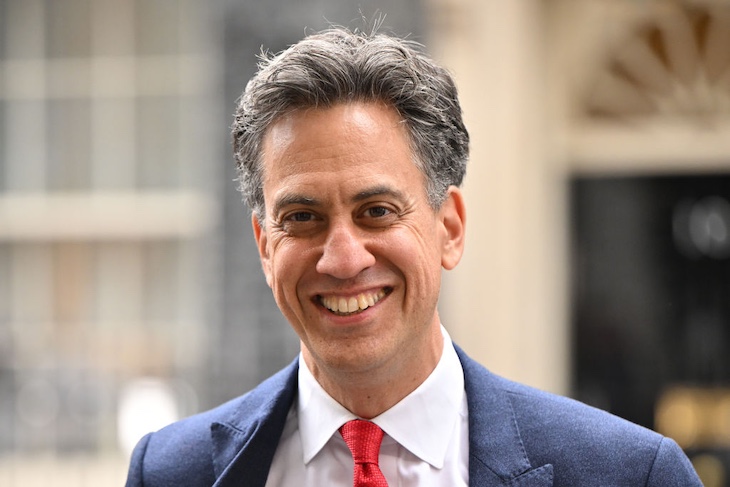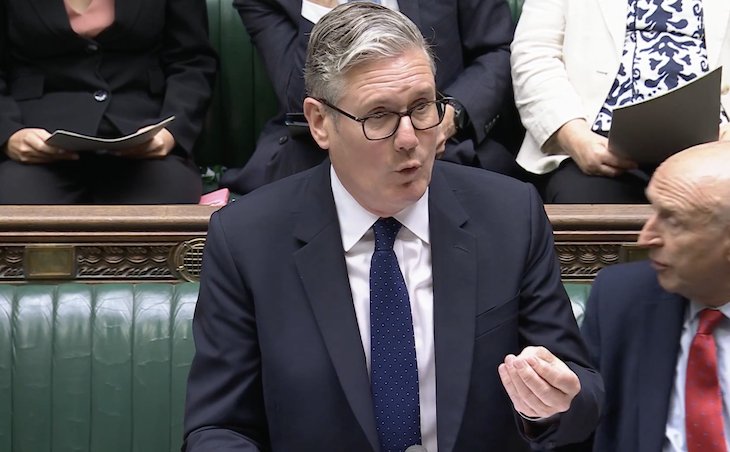I know it has only just begun, but it is not too early to start wondering: what will it be that causes the Starmer government its first serious problem? A likely surge in arrivals of illegal migrants seems one possibility, given that some of those encamped in northern France appear to be well aware of British politics and have been reported to be waiting for the moment when Starmer fulfils his policy of ending the Rwanda scheme ‘on day one’.
But the confirmation of Ed Miliband as Energy and Climate Secretary raises another source of trouble: Labour’s hugely ambitious plan to decarbonise the national grid by 2030.
It should be noted that there has already been some shifting on this target. Labour policy as published on the party’s website as recently as May suggested that a Starmer government was aiming to create a grid almost entirely based on wind and solar energy.
It was also claiming, somewhat preposterously, that a switch to 100 per cent clean energy would save consumers up to £1,400 a year. Given that the average dual fuel bill under Ofgem’s price cap is currently little over £1,500, it seemed Labour was promising virtually free energy.
Labour then downgraded its claim to an average saving of £300 a year. Meanwhile its manifesto left the door open to keeping a strategic network of gas power stations, combined with carbon capture and storage – which was Rishi Sunak’s policy.
Nevertheless, Labour remains committed to its 2030 decarbonisation target for electricity – and it is going to be a huge millstone around its neck. Gary Smith of the GMB union has told it so, as has Jim Ratcliffe, owner of Ineos and one of Labour’s new supporters. Miliband has produced few detailed plans as to how he can achieve his target. He cannot tell us how Labour’s decarbonised grid would cope with the intermittency problem – which would require vast energy quantities of energy storage or some other kind of backup. To give an idea of the cost of that, the US government’s Pacific National Laboratories estimates the lifetime cost of lithium batteries at around £240 per Megawatt-hour, six times as much as it costs to generate the energy from wind in the first place.
Neither can Miliband explain how his target will save consumers money when his Treasury colleague Darren Jones admits that it will cost ‘hundreds of billions’ of investment in wind farms, new cables and everything else. Maybe Miliband thinks investment costs don’t matter because they will generate all these ‘well-paid green jobs’ and are therefore a social good. But anyone fooled into thinking that a grid based on wind energy will save us all money should look at the case of Denmark, which generates 57 per cent of its electricity from wind – twice as much as Britain and higher than any other country. Denmark has had Europe’s highest domestic energy prices, around a third as much as Britain.
A target is only a target of course, and unlike the 2050 net zero target Labour’s plan for the grid is not legally-binding. But watering down the target would come at a very heavy political price given that Miliband eviscerated Rishi Sunak for watering down green targets. The new energy secretary is going to be a big liability for the new government.








Comments